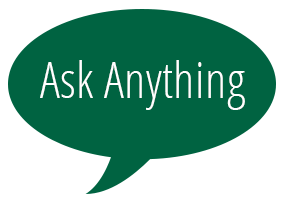Chapter 14: Viewing Properties and Making Offers
This is an extract from the ebook How to Really Buy a Property.
What's covered in this chapter
- Why it's worth preparing for viewings;
- What documents you should have to hand;
- Why agents ask questions that could cause you offence;
- The terminology used by agents;
- The difference between Chain Free and Vacant Possession;
- Why you can't get a mortgage on some properties;
- The characteristics of a leasehold property;
- What lease lengths affect a properties value;
- How lease lengths can be extended;
- Why Share of Freehold is not always attractive;
- The agent's obligations if you make an offer.
How the System Works
It is an incredible thought that many of the viewings on properties are carried out by agents who have absolutely no idea what the applicant is looking for or if they can afford anything more than a broom cupboard in Aberdeen. A typical telephone conversation can look something like this:
AGENT: Hello, Nice Estate Agents, Jim Speaking
CALLER: Hi, I've seen your sign outside 26 Easy Avenue. What is it and how much?
AGENT: That's a four bedroomed house going for £550,000
CALLER: Fantastic, when can I see it
AGENT: Well, I'm free in about half an hour
It really is that simple and, when you come to sell your property, it really is that insecure. Try it yourself word for word and see what happens! For you as a buyer it can be a sure sign that the day you are desperate to get a second viewing on the fantastic flat you have seen, the agent is showing a bored housewife around a Georgian property she has no intention of buying!
Even more jaw-dropping is that the law requires an Estate Agent to pass on any offer you make to a vendor, in writing, within twenty-four hours. You do not have to prove that you can actually back this offer up with any sort of funding. Beware however that they call this type of offer, to the vendor, "reckless" and so it does you no favours at all as a buyer.
This all means that you can step out and start viewing properties straight away although if you do not want to waste your own time it is worth taking a moment to familiarise yourself with the common terminology that will be bounded around. You will also find the more professional agents do require certain documents before they are prepared to spend time with you. As such you will need to know:
- How to prepare for your viewings
- Common terminology
- How to make an offer
Preparing for Viewings
There are two parts to your preparation:
- Documentation you will find useful
- Working out your requirements
Useful Documentation
Some agents do require you to prove that you have at least thought about your finances before they will take you on a viewing. Although the majority will never ask for anything you do not want to be rushing around trying to prove your worth when you see that perfect property on a particular agents web site. While you are sorting out your documents someone else may be viewing and offering on the property!Many buyers take offense here but for no good reason. You 'phone an agent who says he needs to see proof of finances before going on a viewing. Your first instinct may well be to feel insulted, here is someone who does not believe you. You almost feel as if you are being accused of lying!
Turn the tables for a moment and imagine you are selling a property. For the security of the property you really want an agent that will make sure the applicants appear to be genuine rather than someone casing your place to identify expensive items. You will also want an agent who only shows serious applicants around the property, not your curious neighbours while you are out at work!
When it's put this way it suddenly begs the question, why doesn't every agent qualify their applicants? This is covered in Why Vendors Choose Bad Agents. For now its worth knowing the two documents that are requested the most:
- An Agreement in Principle or Pre Arranged Mortgage - see Sorting Out Your Mortgage - to show you can afford the property
- A copy of your bank statement to show you can afford the deposit
An Agreement in Principle (AIP)
If you will need a mortgage to buy a property the lender will be able to supply you with an agreement in principle based on a few simple questions. They will generally want to know how much you earn every year and how much you pay in debts every month (say to credit cards or bank loans). They take one from the other and come up with a figure that they think you can afford to pay them every month. Calculating this backwards over the term of the mortgage (the time they will give you to pay it back, usually twenty-five years) gives the amount they are prepared to loan.
It is a very basic calculation and issued without making any checks on your financial history. Everything from you is taken at face value, it is so simple that some lenders claim to be able to provide you with one in less than sixty seconds! For the professional agent however, it is a sure sign that you are taking your search vaguely seriously.
Getting an AIP is also a useful exercise in helping you consider your budget carefully. Not every lender will offer you three and a half times your salary (something that many first time buyers assume) as a mortgage. You will also start to get a feel of the various restrictions that certain mortgage products have. Some, for example, do not allow you to buy in blocks more than four stories high, others will only loan on properties with more than two bedrooms, and so on.
A Pre Arranged Mortgage (PAM)
For information on PAMs and how they can speed up your purchase see Sorting Out Your Mortgage
Bank Statements
If you are buying with cash or if a large part of your purchase will be cash it is reasonable to expect that the agent may want you to prove you are good for the money.
If you are lucky enough to have a ridiculously large amount of cash but you don't want the agent to know that simply ask the bank for a fax or letter confirming you have a certain sum available if required.
Your Requirements
Before viewing properties it really is worth taking twenty minutes or so just to consider what it is you are setting out to buy. The easiest way to do this is by writing down what it is you want and what it is you need. The wants should come quite easily but the needs are far more important. These will be your fallback position. You may want two bedrooms so you can have guests in comfort but you may need a garden for your cat. If you cannot afford both be clear in your own mind which requirement will be dropped.
See Working With Estate Agents for details on how the professionals do it.
Common Terminology
Before you step through the door of your first viewing there are a number of new words and terms to be familiar with. Some of these are surrounded by myths and hearsay. This terminology is used by the estate agents both on their details and when they speak to you, in other words they generally assume you know them.
The most frequently used are:
- First Time Buyer
- Chain Free and Vacant Possession
- Tenanted
- Cash Purchasers Only
- Repossession
- Leasehold
- Share of Freehold
- Freehold
First Time Buyer
Originally this term arose to mean exactly what it said, "A buyer who has nothing to sell because this is their first purchase". Over time it has become associated with anyone who does not need to sell in order to buy, be this their first or their twentieth property purchase. It's worth letting any agent know if this is your situation as you will be much more attractive to many vendors.Your advantage is that, should you make an offer, the vendor is only reliant on you and your solicitor to get the sale through. If you have something to sell, even if an offer has been agreed on it, there is still twice as much to go wrong and the vendor you wish to purchase from knows absolutely nothing about the stability of your buyer.
In recent years it has become increasingly popular for home owners to sell and move into rented accommodation before they start looking for something to buy. Many have realised the cost of renting is often outweighed by the lower offers that are accepted by vendors from First Time Buyers.
Such buyers are also sometimes referred to as chain free (see below)
Chain Free and Vacant Possession
The two terms are often mixed up but they can mean very different things:- Chain Free Buyer: A buyer who does not need to sell anything in order to buy (see above)
- Chain Free Property: A vendor who will sell his property and move out as soon as the solicitors sort out the paperwork and the buyer has the funds in place. This is different from the chain situation where a vendor accepts an offer subject to him finding a place to buy. Chain Free Properties are extremely attractive as any purchase should only involve five parties - you, the vendor, the lender and the two solicitors. The fewer people involved and the shorter the timescales, the more likely it is that everything will happen successfully
- Vacant Possession: This is often confused with chain free properties. Just because a property is empty it does not necessarily follow that it is being offered chain free so always double check.
Tenanted
It is possible to buy a property which is currently rented out. A landlord, for example, may want to sell his property but the tenants are only halfway through their twelve month lease. Many investors do buy tenanted properties, it saves having to find tenants themselves! It's possible but its not easy and both the lender and solicitors will need some badgering to make it happen.If a property is advertised as tenanted and you want to buy it that way it is always worth checking what references the tenants provided and what deposit they have lodged.
Cash Purchase Only
and all the others, when you
purchase the ebook How to Really Buy a Property



